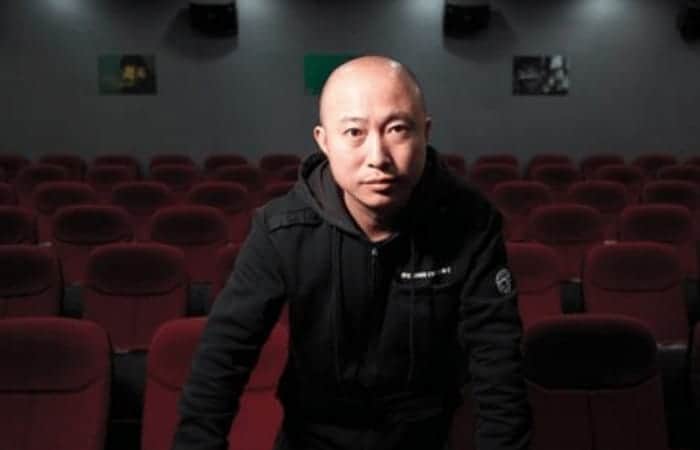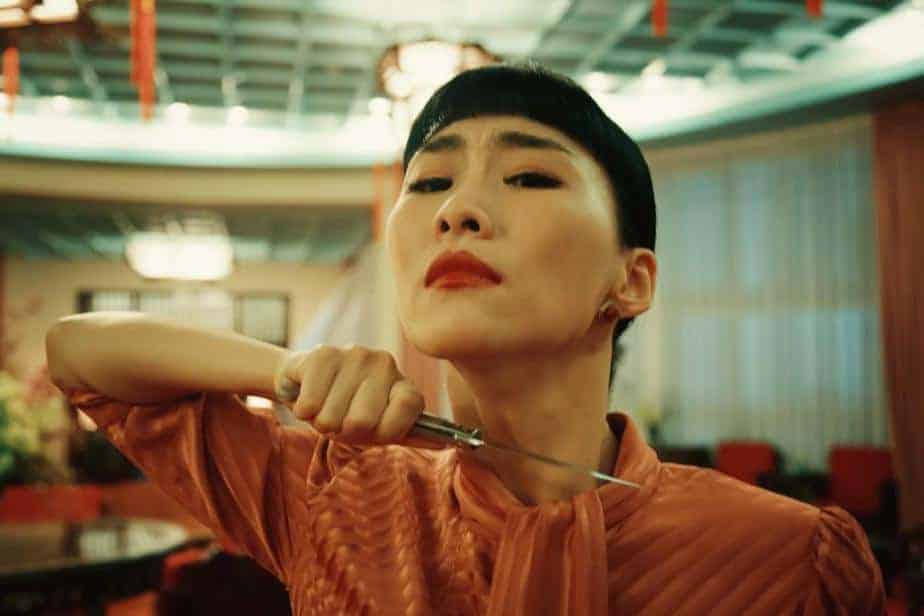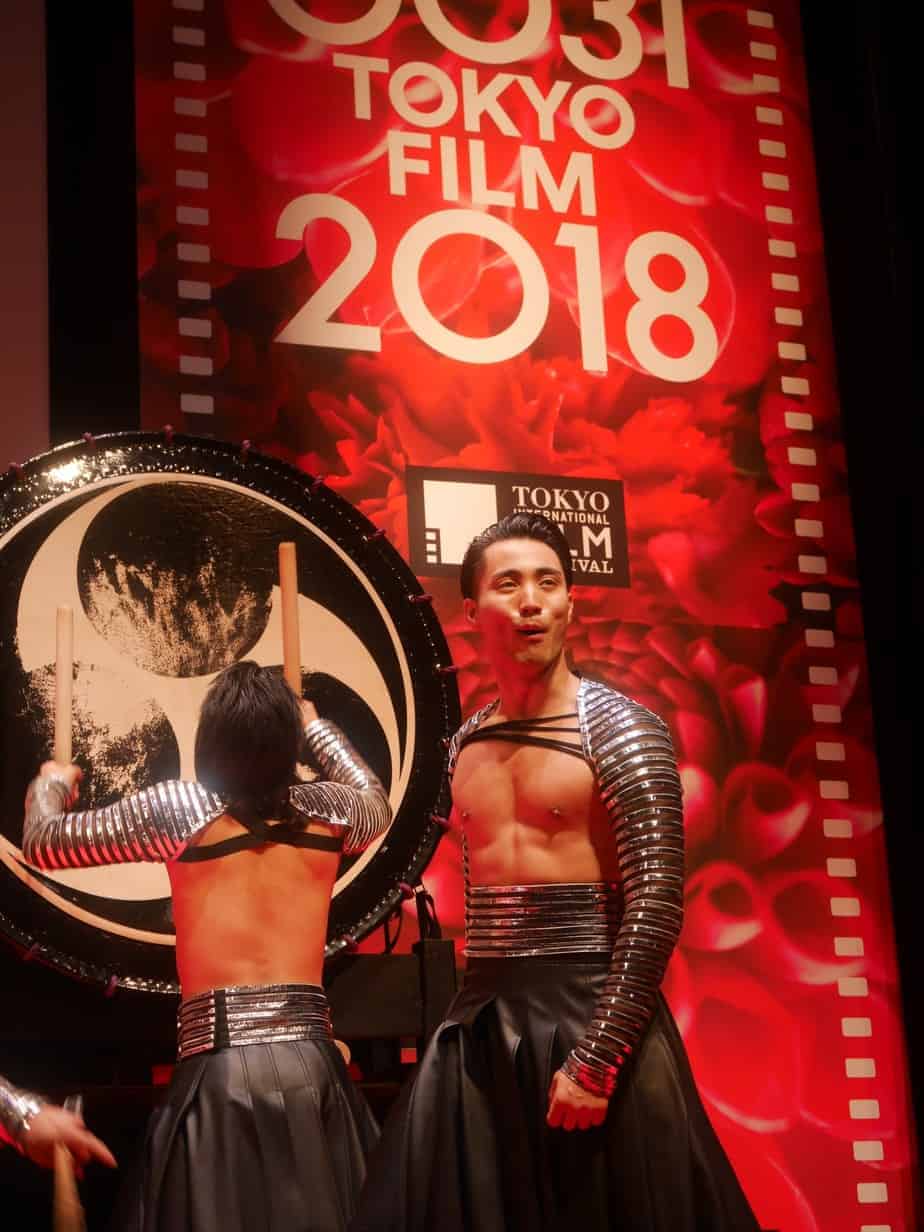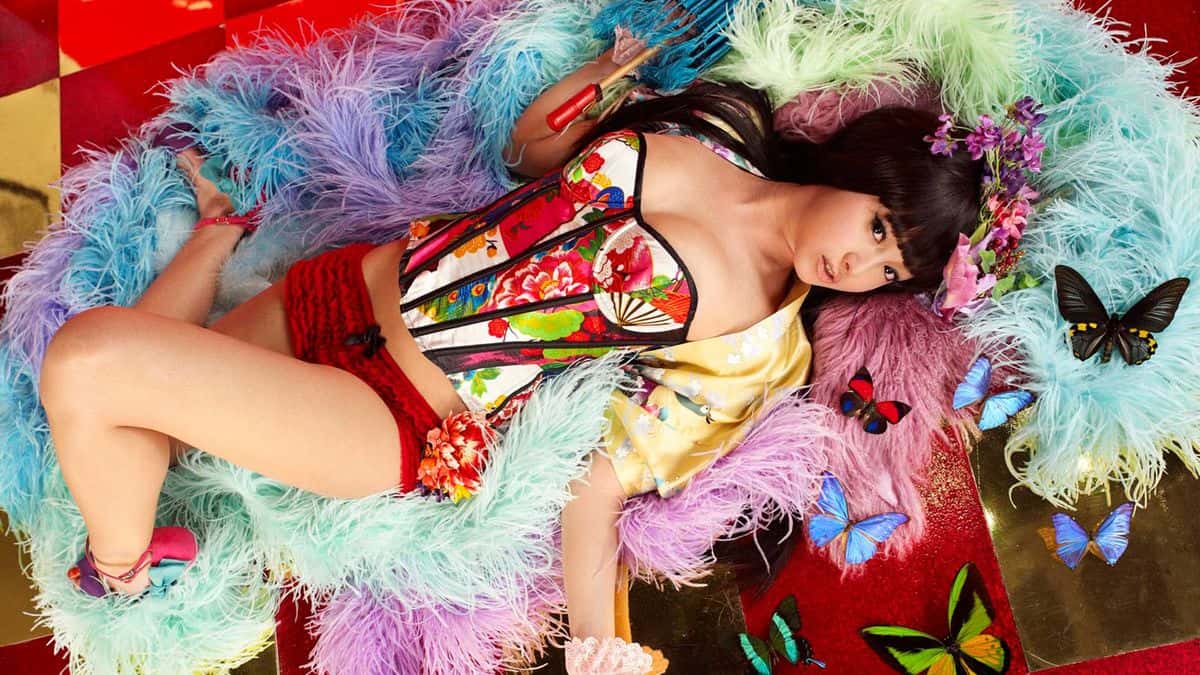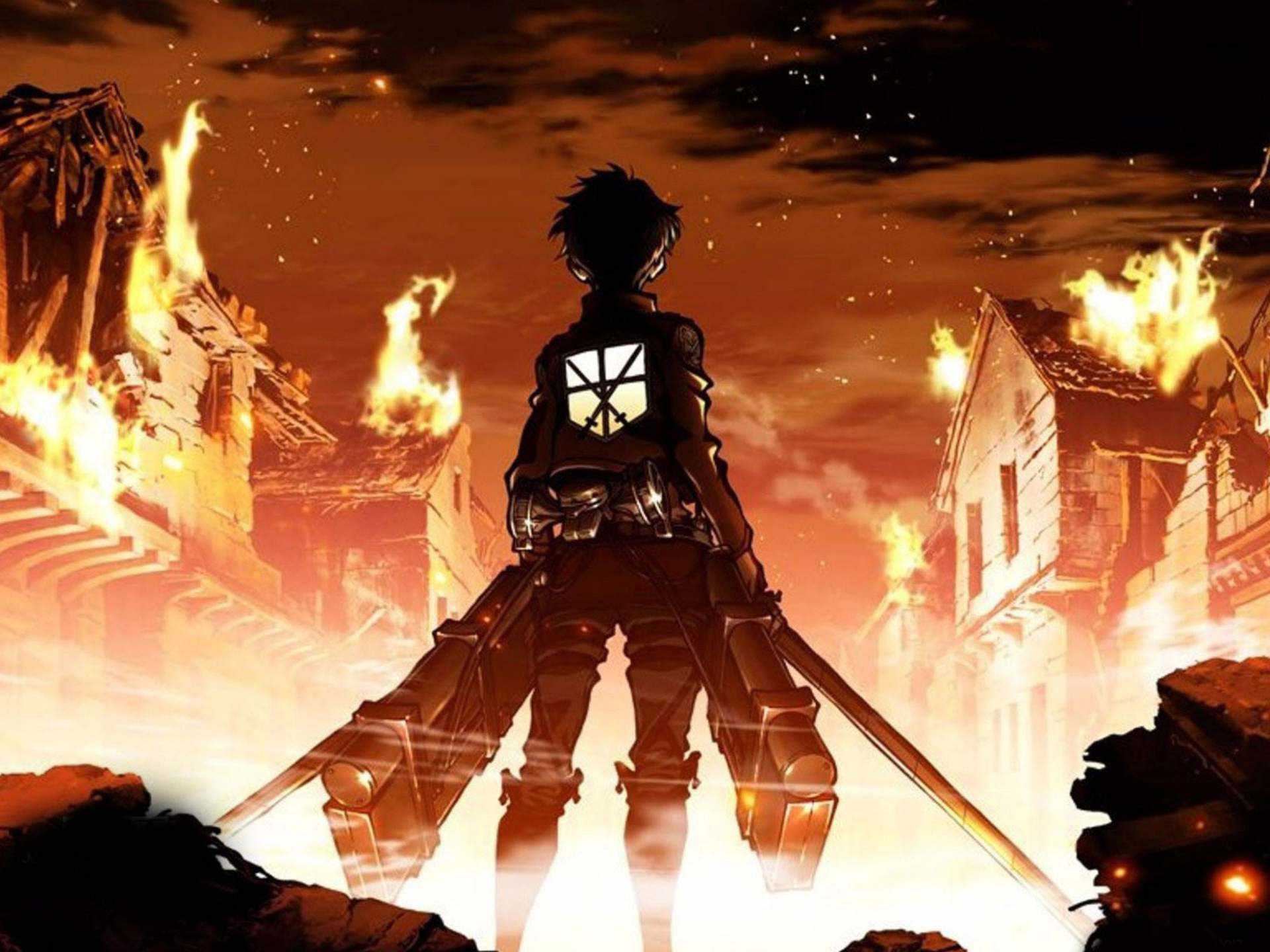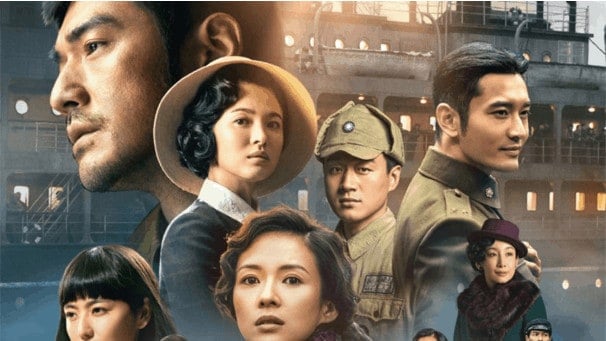The interview was conducted in March, 2018
Shuna Iijima is a Japanese actress trained in London, UK, and based in Tokyo. She trained in various genres of theatre acting and performances in London, including Shakespeare, physical theatre, clown, puppetry and devising. She directed several theatre productions with her creative partner during her training. After graduation, Shuna has followed her passion for screen acting and is currently working for films, music videos and commercials.
We speak with her about her career, her latest film, “Bad Poetry Tokyo” and the award she received at the Osaka Asian Film Festival, her cooperation with director Anshul Chuhan, her future projects, and many other topics.
Congratulations on the award for Best Actress at the Osaka Asian Film Festival. How do you feel about this success?
Thank you. I was very surprised to receive the award. I am very thankful to the jury members at Osaka Asian Film Festival. I want to give that award to Jun, the character I played in the film, and the past me who was working for the shoot. And I couldn't manage playing her without Anshul. It is very honourable and also a scary thing to receive, but it will make me keep running and remind me not to be lazy.
You have trained in theatre acting in London. How did that occur and how was the experience for a Japanese studying in London?
I always wanted to live abroad. Maybe because I spent my childhood outside of Japan, in Indonesia. I joined a drama class (after school activity) when I was in high school in Japan, but I didn't think much about becoming an actress at that time. I was mainly making props for the shows. I just liked the English language so I was vaguely thinking of becoming a professional interpreter in the beginning. But then my passion towards theatre got bigger and decided to study acting in the UK.
Studying drama in the UK was really hard for me in the beginning. I didn't have a good level of English and didn't have a proper acting training in Japan. I had many nights crying alone. But then the language problem made me delve more into physical theatre which later on I decided to take as a major in MA course in university. I found myself enjoying the freedom of creating performances using my body, voice and mind in Physical Theatre. And exploring it was my best time in the UK. Not only as a performer, but as a human being; it changed me. It made me think of life and philosophy. I created many performances with my partner and that stretched my brain. So it was hard in the beginning but turned out well at the end.

You have also played in “Ken and Kazu“. Can you tell us a bit about that experience and your cooperation with Hisohi Shoji?
“Ken and Kazu” was my first feature film, after coming back from London. Hiroshi Shoji is a great director to work with. I think he is always curious about actors and tries to understand them (I remember he was reading books about acting). He likes to hear ideas from actors, and gives them freedom to play around. Good thing is that as well as his softness as a person, he has a clear vision as a director and nobody can change it when it comes to filmmaking. I enjoyed working with him.
Why did you choose to play in “Bad Poetry Tokyo”? In general what are you looking for in the parts you select?
I worked for his previous short film, “Kawaguchi 4256”, which was my first time working with him. Before shooting “Kawaguchi 4256”, he told me he was planning to make a feature film and thinking of me in it. But since he never worked with me before, he wanted to try and see. So, that short film was sort of an audition for the feature. And I simply enjoyed working with him. To be honest, I didn't imagine this film, “Bad Poetry Tokyo”, would become so much special to me in the beginning. My feeling for the film got bigger and bigger as I got to talk about it with him. The story/ideas for the feature changed from time to time, I remember him telling me the film would have three parts with three different stories or mockumentary style of shooting etc. During the time he was writing the story, I got to know more about him, and when I received a rough draft of the script, it thrilled me. It was like a storm, a big fire. I felt what life is for him. It is full of chaos, confusion, anger, purity and thirst for understanding love and life. And I wanted to be in that fire, I wanted to burn with him.
I also like that he is always desperately looking for a way to make something new, something original. And nothing pretty but something real.
In general, I like to see struggles in a character. And it would be great if a role is something I never played before. Because, in that case, I can find different sides of myself, and that is fun.

How did Anshul Chauhan guided you for the role and how did you interpret the character? In general, how was your cooperation with him?
I have short memory in general and so much happened during the shoot so my memory might be slightly different…anyways.
We rehearsed for just two nights: few hours with Orson Mochizuki (who played Taka) and few hours with Takashi Kawaguchi (Yuki) and Kento Furukoshi (Ken) which was mostly chatting and some rough improvisation of some scenes. But I spent so much time with Anshul before the shoot. We talked about the story and the character, and we used a big amount of time to share about ourselves; our past, our experiences, our life. I felt it was a very important process for him in order to make a film together. He wants to, or maybe has to, know about actors, their personalities. He was the first director who wanted to know about myself that deep. It took a bit of time for me to get used to it.
Because Jun came from his mind and there are similarities between them, I thought I had to understand Anshul first to play her. I was lucky that I could spend time so deeply with him. He was so willing to share his mind. As much as he gave me, I observed him too. Also I did some research and talked with some friends who had similar experiences with Jun in life. My friends were very helpful, some of them emotionally and some objectively shared their experiences and how they affected them.
During the shoot, I lost weight everyday and constantly felt sick. Anshul tried his best to keep the film world. He kept me isolated from others and gave me a lot of pressure as a lead actress. My mind was already in a chaotic state, so I just let myself fall into that confused chaotic state. Because that is what Jun is. I felt three people were in me while shooting: Jun, Anshul and Shuna. It was crazy but I had the best time, because you don't get to have that experience often in life. I truly enjoyed working with him and will be forever thankful to him for the time.
When I look back, I really think Takashi was perfect to play Yuki. Not only his talent as an actor but also his natural softness and warmth stroked my/Jun's needles.
I am not satisfied with my performance, but I can say that, at that time, I gave my all and I felt so empty after the shoot.
In general, Anshul likes to hear opinions from actors and gave actors freedom on set. There were no instructions for movements. You first move the way you feel, then he fixes the camera according to it. He sometimes put new scenes or changed scenes while shooting. And Max, our cinematographer, was amazing. Well I am sure Anshul will explain better. Anyway, I think he was the best partner for Anshul. I think the whole team was talented and willing to explore the journey with the director.
Anshul sometimes did certain things without giving actors clear directions or reasons, on purpose, to pull out feelings from them. Sometimes, lack of communication made things difficult (I guess building up trust with him is essential) , but mostly it worked for the film. It's a complicated feeling as an actor, but it helped me anyway. And I enjoyed it.
The film deals with the world of hostesses. Can you tell us about your opinion of the concept? And did you do any research regarding that part of your character?
There are many films having that concept, so I don't have particular opinion about it in this film.
About researching, I remember I walked around places at night many times, just wandered, not in a dress but in more feminine clothes and heels. Then I went to some girls bars to talk with girls or observe people coming in, and asked some questions to friends who have experience working as hostesses. But of course ,everyone is different. I didn't dig in too much about the job. I don't know, maybe you can see that.

Jun's friend clearly states to her that Taka is taking advantage of her, but she is in denial. Why is that? Is that a part of love, in your opinion, not realizing the faults of the person you are with?
I don't think her feeling towards Taka were big enough to call “love”, or I guess she doesn't know much about the real feeling of “love”. Of course she likes Taka and he is the closest person there. They've known each other for long and both of them are having hard times in life. She thinks he understands her and accepts her. But at the same time, she kind of knows what he does and what kind of person he really is. But she needs him in her life, so she ignores what other people say about him, unless it deeply affects her life.
Another focal point is the abuse women suffer in the hands of men, who seem to dominate the world the film takes place in. What is your opinion on these subjects?
Abuse, in any form, is unforgivable, it doesn't matter if it concerns men or women. Power is always there. Physically and mentally, in different shapes. I have some friends who have experiences, by family members, by lovers and by classmates. Some couldn't do anything but wait until it is over. Some used to blame themselves, that they were not good enough and that's why they got abused. I can imagine it takes a lot of courage to see the reality and stop blaming themselves or, somehow, stay away from those people. I don't have an experience so maybe my words are shallow, I don't know. I can only imagine. But I can say that we all should know abuse haunts people and it can easily destroy somebody's life. I hate to see some of my friends try their best to forget about it, but still suffering from that.
Was it difficult for you acting in the sex and violent scenes? Did the fact that in many instances Jun appears in her underwear present any difficulty for you?
This was my first time in sex scenes, so I was nervous in terms of technique, I wasn't sure if my acting was convincing. But emotionally, I have no problem having sex scenes if it is necessary in the film, so I wasn't shy about it. Plus, I had already built up trust towards Anshul and the whole team, so there was nothing I was scared of. I didn't want to make it “pretty”, I wanted to make it realistic and show some life from it. So I am happy he had those scenes in necessary situations.
Violent scenes, it wasn't difficult for me. Well, it was difficult to slap myself and I thought I slapped hard, so I was surprised that it didn't look that painful on screen…
Wearing underwear in scenes was fine to me. Though I wrapped clothes around my body, once I get “cut, ok”. Thankfully, it was shot in summer.
The scene where Jun throws herself in the stairs is one of the most intense in the film. Can you tell us a bit more about it?
That was one of the most fun scenes to play. After cutting her hair, Jun gets stronger and at that point, nobody can beat her down. It was funny to see her father shocked and lost, I felt he was tiny. Kohei Mashiba (who played Father) is a big, strong guy, so it made it more funny to me maybe. We used a normal house and I was a little bit afraid of breaking stairs and that affected my performance, but I shouldn't have worried about that.

You are a very beautiful woman. Is it hard for you having to watch your character becoming “ugly” due to the violence and the hardships she has to suffer?
I love it. Seeing my face differently in films is fun. And if my face looked destroyed, “ugly” in your word, on screen because of suffering in life, that is the best thing I can hear about my performance. Because that means I portrayed the character. In this kind of film, all characters are suffering and confused and lost, and they fight to survive. So of course you cannot be just “pretty” or “clean”.
I never cared about “looking beautiful” on screen. It just all depends on the character I play. If she has to be beautiful, then I should be. If she has to have a tired face, then I should be like that. I hate to see when a character is supposed to be having hard time and her face or clothes etc are so clean and pretty.
We didn't have make-up artist on set. Mostly just no makeup. Only exceptions were Jun's broken face which Anshul did all, and the bar scenes which I did by myself.

Why does Jun leave the car in the end?
That, hmmm maybe I leave it to the audience.
What is your opinion of the Japanese film industry at the moment? Is it hard getting parts in films, particularly for a woman?
In general, especially in major productions, there are not many unique, original films. This is of course my personal opinion and taste. But I feel that, if there are more films which come from the core of us, then the industry will be more challenging and interesting to fight for. But of course, there are amazing films made every year and I get thrilled when I watch them.
I don't think its hard to get parts just because of gender. Of course there are always ideas and unforgivable things happen because of gender, but personally, I don't feel it is difficult to get jobs because I am a woman. Though I do feel this about age. I wish there are more and more films which focus on above 30s. I understand the charm of young people, their naivety, sensitivity, unsettling feeling towards society or life etc. And people easily take that ideas. But I believe that the more you live, you get more layers in yourself and that makes a person more attractive. And there are plenty of stories in those people. And of course I am saying this because I am in my 30s too.
Which actresses have influenced you the most?
I have many since I find many actresses talented. I take good things from each haha. But I have a strong vision of what kind of actress I want to be. I don't know how to explain it, but hopefully I can show you that in the near future.,

Can you tell us a bit about your future projects?
I have one project which is coming soon, and some I am auditioning. And some other things in my mind. This year is important for me, and I hope I can achieve some level.
I would like to say I have a big special feeling towards this BPT team and I really hope the film gets many chances for screening so that people will see everyone's works.



